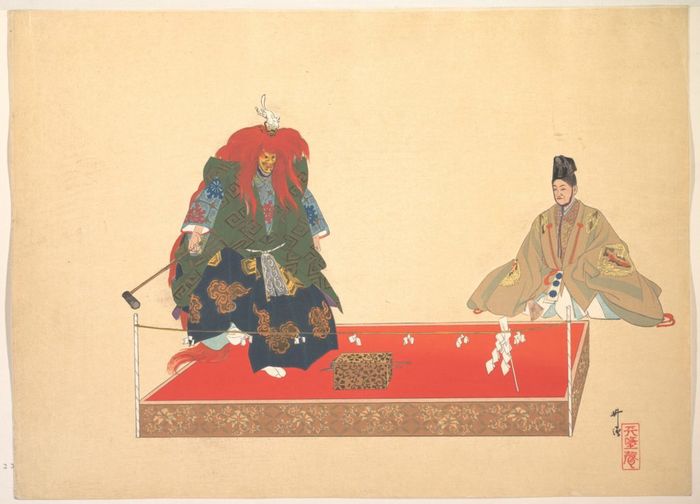On a wet and windy afternoon on an island west of British Columbia, a young researcher by the name of John Swanton sits down in front of Ghandl, the blind poet of Sealion Town, ready to dictate a tale of mountains, marten skins and spirit-beings.
Swanton arrived on Canada’s Haida Gwaii in September 1900 on an anthropological mission, and did not leave for three and a half years. He was not stuck in a lockdown. The three and a half year stay was voluntary. During this time, Swanton dictated over 40, 000 lines of Haida poetry, learning, as he did so, about the island, its people, and their culture.
“In 1862, smallpox shrunk the population of Haida Gwaii by more than half.”
In one poem, In His Father’s Village, Someone Was About to Go Hunting Birds, Ghandl speaks of a hunter who falls in love with his prey. The hunter brings a goose princess back to his village but it’s soon clear that his new wife is not happy. She will not eat the food of humankind, but snacks only on eelgrass. When a villager criticises the goose princess for loving goose food so much, she returns to her home in the sky. The hunter pursues his wife and for a while he lives with her in the clouds, but alas, he misses the earth, and even though his quest was long and arduous, he resigns himself to leaving heaven and the goose princess behind.
One can only imagine how many Haida myth texts were told around the fire pits and coastlines of the north Pacific, the wind’s whispers adding to the tales while a pod of killer whales passed by. However, in 1862, smallpox shrunk the population of Haida Gwaii by more than half. As a direct consequence of the devastation caused by the disease, the Haida language was dealt a mortal blow. Of the ancient Haida myth texts, 40, 000 words are all that remain transcribed. ’In His Father’s Village’ is but one work that survived, and yet I can’t help but feel that the tale yearns increasingly for its sister texts, and in missing them, will soon return to them, reunited with the shapes and structures it is based on, and be lost to us forever more.
Robert Bringhurst’s 1999 work, A Story as Sharp as a Knife, tells us more about Swanton’s time on Haida Gwaii. It is while reading his work that I couldn’t help but shiver at the similarities between the year 1900 and 2021.
“COVID–19 is a poet. An ancient poet. A performance poet. An oral-formulaic poet of epic proportions telling tales across the globe.”
COVID–19 is not a myth. COVID–19 is not a story. COVID–19 is a poet. An ancient poet. A performance poet. An oral-formulaic poet of epic proportions telling tales across the globe. Since arriving on the shores of the United Kingdom, it has added a legion of words to the British language. The cost — Life.
I can’t help but channel my inner John Swanton when I hear conversations that feature the phrases, ‘sorry, you’re on mute’, ‘two meters, please’, and ‘in these unprecedented times’. A triptych of phrases, some born, some reborn, from the discourse surrounding COVID–19 but all used to start a story or some kind. But who is logging these phrases? In 2120, when a budding anthropologist listens to the oral history of a worker’s tale from 2020, will the referrals to face masks be an obvious one, or will their meaning be lost to time?

It is a wet and windy afternoon and I am listening to my father, our family’s head storyteller. I am lucky. Lucky to hear him speak, lucky to have the television as our fire, and I am lucky to be here. It is Christmas. Parts of England are in a lockdown.
It’s a simple story about a washing machine and some tools:
You remember Alan, he says. Alan asked me to get rid of a washing machine for him last week because he was shielding. He didn’t want anything for it. It was good for scrap, but he doesn’t have a drive to put it on, you see. Anyway, I said yes, and he watched me get it in the van after work while sticking to his two meters.
“In 2120, when a budding anthropologist listens to a worker’s tale from 2020, will the referral to face masks be obvious?”
During a brief pause, my father picks up a remote control and I think he’s about to turn off the TV so that neither of us are distracted. He turns the volume down but keeps the monitor on, a 21st century fire pit lighting up his face as he continues his performance.
When I got home, I struggled to get the thing out of the van on my own. The tools I’d put on top kept rolling about and so I popped them inside the drum even though they made it heavier. I didn’t want to make another trip back to the van, you see. Then something must have distracted me, probably your mother coming home, because I left the washing machine out the front with my tools inside. I even put a sign reading: FREE up against it and I still didn’t remember them.
Anyway, the next morning the machine was gone.
He’s standing now. I follow him into the kitchen. He can’t contain himself. He’s in full flow. He makes a cup of coffee to wet his lips – the kettle, the sugar, the spoon are every bit as ritualistic as the storytelling.
I couldn’t believe it. I knew straight away that they’d gone. I woke up and saw the washing machine was gone, too. ‘My tools!’ I shouted, much to your mother’s and our neighbour’s dismay. The worst thing about it is that I knew who had taken them. I was woken early in the morning by the sound of a van outside our window. I remember being surprised that it was being collected so quickly, during these unprecedented times as well. But what could I do? I went to work, a few hammers and screwdrivers short.
A common phrase repeated and regaled by the poet Ghandl is, ‘they say’, as in, ‘the youngest started to bathe himself, they say’ and ‘he started making things, they say’ (Bringhurst 397), as if what we are hearing might not be strictly true – at best a well thought out analogy, at worst a lie. That’s how my father, my Ghandl, concludes his story.
Later that night, as I pulled onto the drive after a long day at work, I spotted something on the front steps that looked like a carrier bag. It must have had something weighing it down because it wouldn’t blow away. Anyway, I got out of my van and walked over to the bag, knelt down and looked inside. Now, they say there aren’t too many good people left in this world, but let me tell you otherwise...
There on the front steps, just like the goose princess, his tools had come home.


